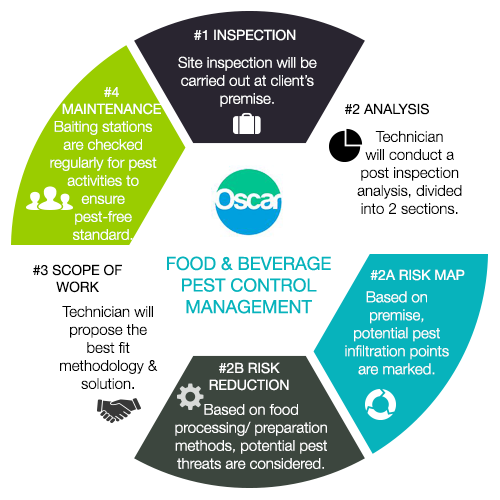Prepare To Transform Your Garden Right Into A Pest-Free Sanctuary Using These Creative Suggestions And Strategies
Prepare To Transform Your Garden Right Into A Pest-Free Sanctuary Using These Creative Suggestions And Strategies
Blog Article
Web Content By-Lauritsen Warren
Imagine your yard as a shelter, a place of serenity and appeal. However, the presence of outside parasites can rapidly interrupt this idyllic photo. What happens if there were simple yet efficient means to maintain these unwanted site visitors at bay and protect your garden oasis? By complying with a few sensible tips and applying all-natural techniques, you can develop an unified exterior area where your plants can thrive uninterrupted.
Natural Bug Deterrents
To keep parasites far from your garden normally, plant aromatic herbs like mint and lavender. These aromatic plants not just add appeal to your garden yet also act as reliable insect deterrents. Parasites like mosquitoes, flies, and also some garden-damaging bugs are fended off by the strong fragrances produced by these herbs. Simply putting them strategically around your garden can aid create a natural obstacle against unwanted parasites.
Along with mint and lavender, take into consideration growing various other herbs like rosemary, basil, and lemongrass to further boost your yard's pest-proofing capabilities. These herbs not just work as all-natural repellents however additionally have actually the included benefit of serving in cooking or crafting homemade treatments.
Strategic Plant Positioning
Take into consideration the format of your garden and the types of plants you need to strategically position them for maximum pest-proofing performance.
Beginning by grouping plants with similar resistance to pests with each other. By doing this, you can create a natural barrier that discourages insects from spreading throughout your yard.
Additionally, placing pest-repelling plants like marigolds, lavender, or mint near more susceptible plants can help secure them. High plants, such as sunflowers or corn, can function as a shield for much shorter plants versus pests like bunnies or ground-dwelling bugs.
Remember to leave enough area between plants to boost air blood circulation and minimize the risk of illness that pests may bring.
Moreover, take into consideration planting strong-smelling herbs like rosemary or basil near susceptible plants to perplex parasites' senses and make it harder for them to situate their targets.
Efficient Parasite Control Methods
For combating garden pests successfully, applying a multi-faceted bug control strategy is necessary. Start by motivating natural killers like birds, ladybugs, and praying mantises to help maintain bug populations in check. Presenting plants that bring in these advantageous pests can help in parasite control. In addition, exercising excellent garden hygiene by getting rid of debris and weeds where insects might conceal can make your yard much less congenial to unwanted site visitors.
Take into consideration using physical obstacles such as row cover materials or netting to protect prone plants from bugs like caterpillars and birds. Using Suggested Site like neem oil or insecticidal soap can also be effective against specific insects while being much less hazardous to valuable pests and the environment. read page to revolve your plants each period to prevent the accumulation of bug populations that target certain plants.
Frequently check your plants for indicators of parasite damage so you can act without delay. By incorporating these methods and remaining attentive, you can properly control yard bugs and appreciate a successful, pest-free yard.
Conclusion
So, there you have it - with the right techniques, you can maintain pesky outside insects away from your yard and assist your plants grow.
Did you understand that growing mint has been shown to ward off insects and other insects, decreasing the requirement for hazardous chemicals by approximately 60%?
By incorporating natural deterrents and wise planting strategies, you can create a lovely and pest-resistant yard sanctuary for you to enjoy.
